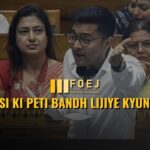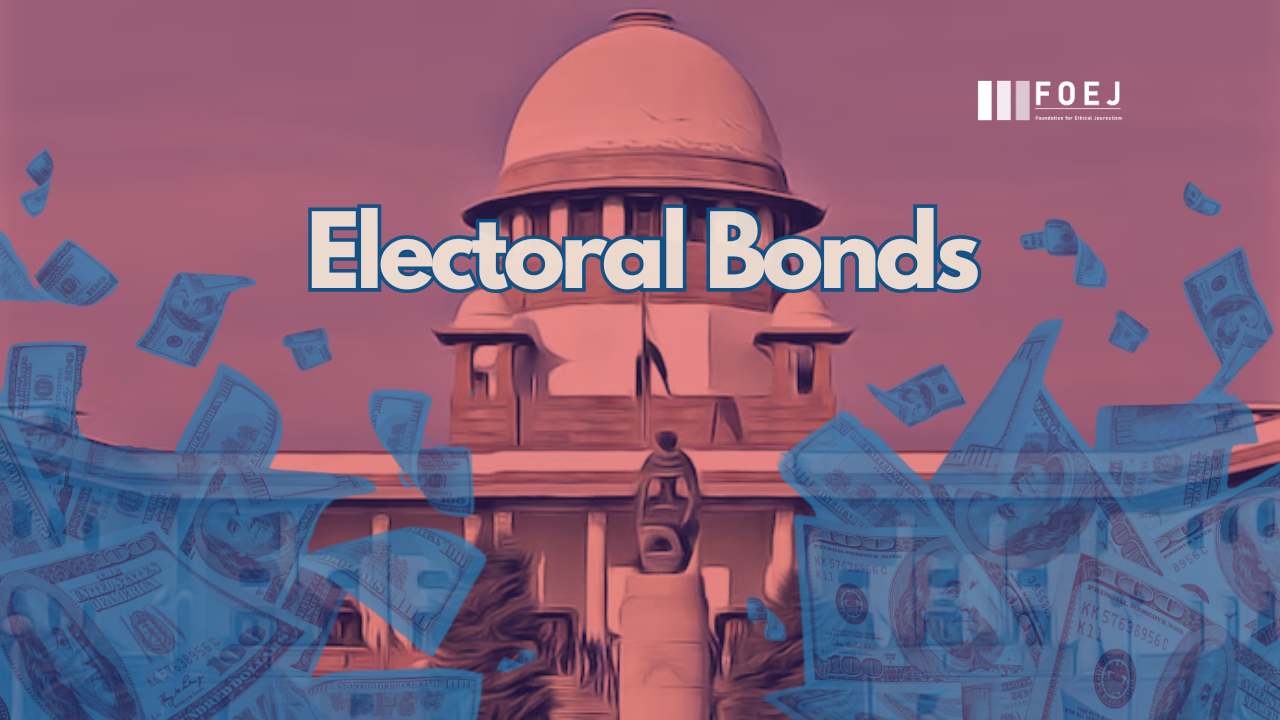On Monday, the Supreme Court ordered the State Bank of India (SBI) to completely provide all essential information, including the unique alphanumeric numbers assigned to each Electoral Bond, to the Election Commission of India.
A five-judge Constitution bench, consisting of Chief Justice of India DY Chandrachud and Justices Sanjiv Khanna, BR Gavai, JB Pardiwala, and Manoj Misra, directed the Chairman of SBI to file a compliance affidavit by 5 p.m. on March 21.
The court required that the affidavit affirm SBI’s disclosure of all Electoral Bond details in its possession and control, without omitting any information. Furthermore, it instructed the Election Commission of India to swiftly post the given information on its website after receiving it from SBI.
The bench emphasised the need of openness, stating that SBI must disclose all accessible data about the bought bonds, including alphanumeric and serial numbers, if appropriate.
To avoid future conflicts, the court requested that the bank’s Chairperson confirm complete disclosure by Thursday’s deadline.
There is no manner of doubt that SBI was required to disclose all details available with it. This, we clarify, will include the alphanumeric number and serial number, if any, of the bonds purchased,” the bench ordered.
It added, “In order to avoid any controversy in the future, the Chairperson of the bank should file an affidavit by 5 pm on Thursday that it has disclosed all details in its custody and that no details have been withheld.”
The court underlined that its prior judgement on February 15 compelled SBI to provide detailed information such as purchase and redemption dates, purchaser and recipient names, and bond denominations. It emphasised that the phrase “including” in the judgement refers to illustrative rather than complete requirements.
During the hearings, the court warned against selective disclosure by SBI, expressing concern with the bank’s refusal to provide Electoral Bond data with unique alphanumeric codes as earlier requested. The court said that the SBI has not fully complied with its March 11 order in which it had ordered the bank to disclose all details concerning Electoral Bonds.
Furthermore, the court criticised SCBA President Adhish Aggarwala for appealing to Chief Justice DY Chandrachud for a suo motu review of the Electoral Bonds decision, describing it as a public related issue.
CJI told Aggarwala, “Apart from being a senior counsel, you are president of SCBA. You have written a letter invoking my suo Motu powers. These are all publicity related… and we will not get into this. Do not make me say anything more. It will be distasteful.”
In response to Solicitor General Tushar Mehta’s worries about the court’s commitment to curb black money, Chief Justice DY Chandrachud emphasised the court’s commitment to preserving the rule of law and adhering to constitutional guidelines.
“Now the witch hunting has started on another level and not at the level of the Central government. Those before the court started giving press interviews and deliberately embarrassing the court. A series of social media posts, at least intended to cause embarrassment, started,” Solicitor General said and asked it to consider issuing some direction in this regard.
“Our court is only to work for the governance of rule of law in this polity. As judges we are also discussed in social media but our shoulders are broad enough to take this. We are only enforcing our directions of the judgement,” said the CJI.
About the Supreme Court’s initial order
In a major decision in February, the Supreme Court invalidated the Electoral Bonds Scheme, putting an end to anonymous political party funding and ordering SBI to stop issuing electoral bonds. The majority decision also struck down comparable revisions to the Income Tax Act and the Representation of the People Act, which required openness in political donations.
Electoral Bonds is bearer bond, which can be purchased by any individual, company, firm or association of persons provided the person or body is a citizen of India or incorporated or established in India. The bonds are issued specifically for the purpose of contribution of funds to political parties.
Several petitions challenging the amendments introduced by the Finance Act 2017 and Finance Act 2016 were brought before the Supreme Court, alleging the unrestricted and unregulated financing of political parties.









